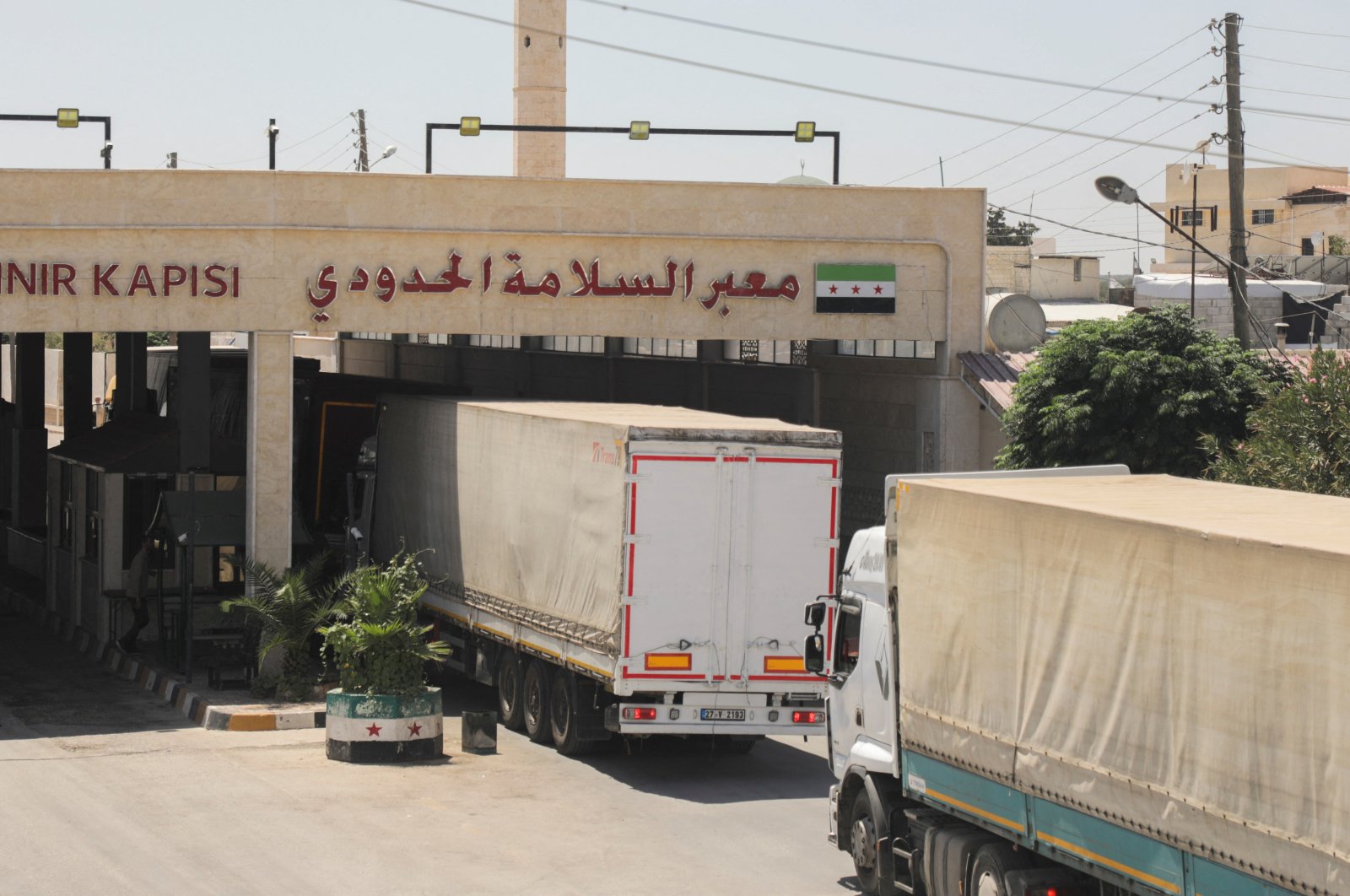
With Syria extending the authorization for the United Nations to deliver humanitarian aid supplies through vital Turkish border gates, U.N. deputy spokesperson Farhan Haq said the independence of U.N. operations has been "safeguarded.”
The agreement, announced Tuesday night, will reopen the Bab al-Hawa crossing, which had been used for 85% of deliveries to the northwest Idlib region, home to about 4.1 million people.
Haq said Wednesday the U.N. is ready to resume operations through Bab al-Hawa as soon as possible, but it will take some time to get trucks moving, and "I don’t expect anything to happen in the next few days.”
The U.N.-Syria "understanding” on Bab al-Hawa, announced by Haq Tuesday evening, followed his announcement earlier in the day that Syria agreed to keep two other crossings to the northwest, Bab al-Salameh and al-Rai, open for three months until Nov. 13.
Haq said Wednesday that U.N. Secretary-General Antonio Guterres welcomed the understanding on Bab al-Hawa and Syria’s extension of authorization to use Bab al-Salameh and al-Rai for three months, and its consent to cross conflict lines at Sarmada and Saraqib, both in the Idlib region, to deliver aid for the next six months.
Bab al-Hawa was closed to U.N. humanitarian operations after the Security Council failed to adopt either on July 11 to authorize further deliveries through the crossing.
Many people in Idlib have been forced from their homes during Syria’s ongoing civil war, killing nearly half a million people and displacing half the country’s pre-war population of 23 million. Hundreds of thousands of people in Idlib live in tent settlements and have relied on aid that comes through the border crossing.
Soon after the Security Council failed to act, the Syrian regime said it would open Bab al-Hawa to the U.N., but it set unacceptable conditions.
Damascus had insisted aid deliveries must be done "in full cooperation and coordination with the government,” that the U.N. would not communicate with "terrorist organizations” and their affiliates, and that the International Committee of the Red Cross and the Syrian Arab Red Crescent would run aid operations.
The U.N. responded that the prohibition on communicating with groups considered "terrorists” by the Syrian regime would prevent the U.N. and partner organizations from engaging with all parties during humanitarian operations. It said in a letter that stipulating aid deliveries must be overseen by the Red Cross or Red Crescent was "neither consistent with the independence of the U.N. nor practical” since those organizations "are not present in northwest Syria.”
Haq said U.N. humanitarian chief Martin Griffiths had been engaging with the Syrian regime and other parties "to reconcile differences” and ensure the U.N.’s independence and humanitarian engagement with all parties.
Syrian leader Bashar Assad opened the two additional crossing points from Türkiye at Bab al-Salameh and al-Rai to increase the flow of assistance to victims of the ravaged northwestern Syria and southern Türkiye on Feb. 6.
